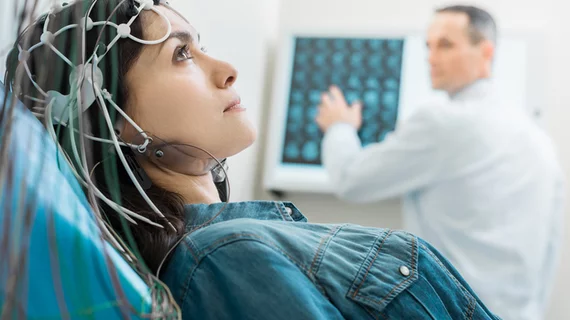Deep learning detects, annotates epileptic seizures on scant EEG data
Researchers have demonstrated that deep learning models can help neurologists interpret epileptic episodes during and between seizures from relatively few scalp electroencephalography (EEG) readings.
The best of the models proved out the concept under review: an automated annotation tool needing 142 times less EEG data than human experts would need to comb through—and epilepsy patients would need to log—using digital disease diaries.
The researchers, from IBM in collaboration with Temple University and other academic centers, worked with 87 scientists and software engineers from 14 research centers around the world to develop the models.
The research team analyzed EEG data from 365 patients representing 172,000 ictal (during a seizure) incidents and 2.2 million interictal (between seizures) occurrences. Part of the analysis was conducting a crowdsourced AI challenge.
“Participants were tasked to develop an ictal/interictal classifier with high sensitivity and low false alarm rates,” the study authors explain in a report published March 18 in the Lancet journal EBioMedicine. “We built a challenge platform that prevented participants from downloading or directly accessing the data while allowing crowdsourced model development.”
Led by IBM researchers Stefan Harrer in Australia and Gustavo Stolovitzky in the U.S., the team found their novel automated seizure detector returned sensitivities of up to 91.6%.
“This study demonstrates the utility of deep learning for patient-specific seizure detection in EEG data,” the authors comment. “Furthermore, deep learning in combination with a human reviewer can provide the basis for an assistive data labelling system lowering the time of manual review while maintaining human expert annotation performance.”
The study is available in full for free.

